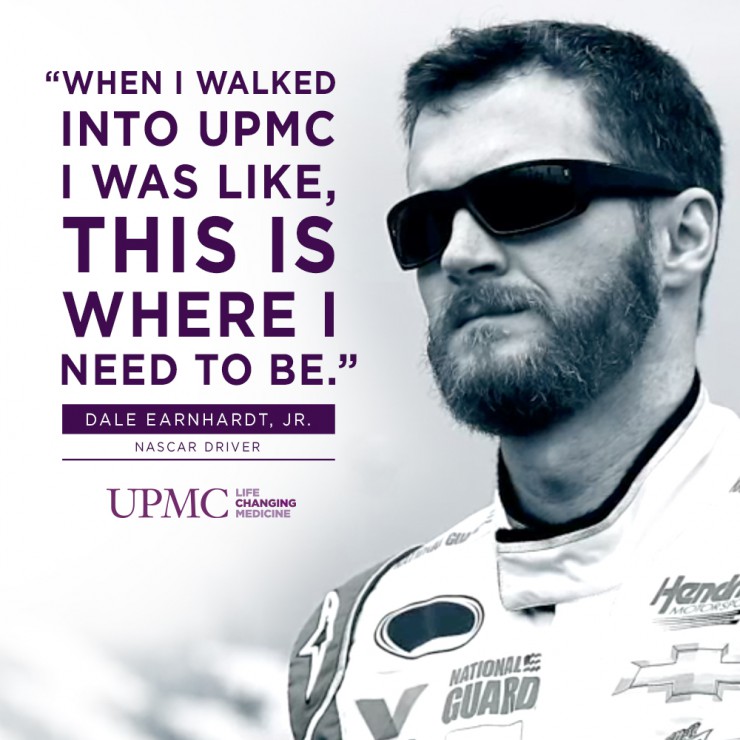The mere mention of a concussion evokes negativity nowadays, but UPMC and its Sports Medicine Concussion Program are teaming with a variety of professional athletes to send a message and change the concussion conversation: It is treatable, and it isn’t an untenable condition.
Launching today, their ReThink Concussions.com initiative brings stories from patients – among them NASCAR great Dale Earnhardt Jr. and Major League catcher David Ross – to educate the public that the research- and experience-proven treatments are helping people every day to return to sports, school, work, normal.
“If you don’t know what a concussion is and what you’re looking for, you’re just going to trick yourself,” Ross says in his powerful video, recounting his experience from being homebound to catching the last out of a championship run last October. “My wife [Hyla]. . . said finally ‘If you don’t tell the doctors, I will.’ “ In the end of the video, Ross talks emotionally about sharing the on-field championship celebration with his wife and children: “She’s the only one who knew what all I went through.”
Earnhardt Jr. says in his video: “I look back at the decisions I made in the past, to try to man up and make it through it on my own. It almost cost me my career. It almost cost me my happiness.”
Their messages are just two of many that were unveiled Wednesday on the ReThinkConcussions.com page, where athletes professional and amateurs will continue to tell their stories.
“An important reality is this: Concussion is treatable if managed properly,” said Michael “Micky” Collins, Ph.D., clinical and executive director of the UPMC Sports Medicine Concussion Program. “With all the new research we’ve done and the nearly 200 papers we’ve helped to publish in the past decade or so, we now are able to provide proven treatments and evidence-based rehabilitation therapies. That should be the conversation now instead of the near-hysteria.”
“People should think of concussions as a treatable injury in the right hands, not some untreatable condition that causes you to retreat to a dark room. The individualized approach to this injury, the ability to use a multidisciplinary team to return patients to normal lives, has changed the course of the injury here – and our successes could be repeated across the world, too.”










